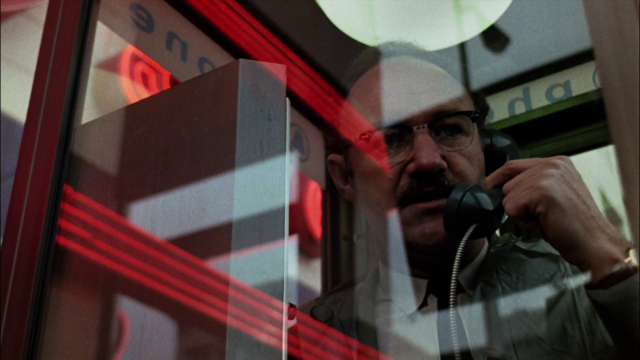Gene Hackman has been out of the game for a while. He has not taken on a role since the 2004 film Welcome to Mooseport. That said, his films still continue to influence and inspire. His iconic performances as Superman’s nemesis Lex Luthor are still unmatched. He played a key role in the New Hollywood era with roles in Arthur Penn‘s Bonnie and Clyde, William Friedkin’s The French Connection and Francis Ford Coppola’s The Conversation. He was no stranger to comedy, though. His performances in Mel Brooks’ Young Frankenstein and Wes Anderson’s The Royal Tenenbaums are broadly well-liked. Hackman is a truly versatile actor. Here are seven of his absolute best films.
The Conversation (1974)
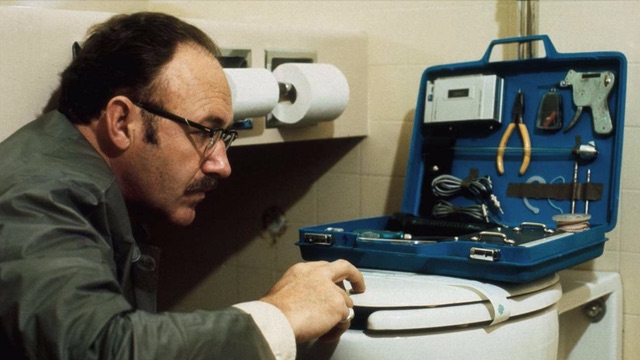
Francis Ford Coppola’s Blowup (1966)-inspired The Conversation may have been dwarfed by The Godfather Part II, which Coppola released in the same year, but its influence remains vital. Hackman plays a surveillance expert named Harry Caul who is tasked with tracking a couple. He finds himself encapsulated by a mysterious conversation between the two that he recorded. With supporting performances from John Cazale and Harrison Ford, The Conversation was and continues to be a satisfying paranoia thriller.
Bonnie and Clyde (1967)
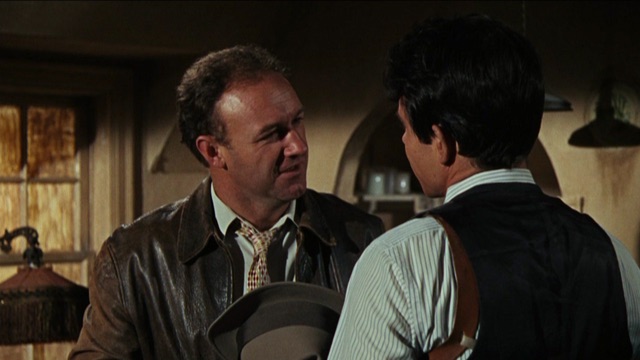
Arthur Penn’s biographical picture Bonnie and Clyde is one of the earliest films of the New Hollywood era. Faye Dunaway and Warren Beatty star as the eponymous and notorious real-life duo, whose Depression-era crime spree is well-documented. Hackman gives a memorable performance as Buck Barrow, Clyde’s older brother who joins in on their debauchery with his wife Blanche (Estelle Parsons). Parsons, for her supporting part, won an Academy Award.
The French Connection (1971)
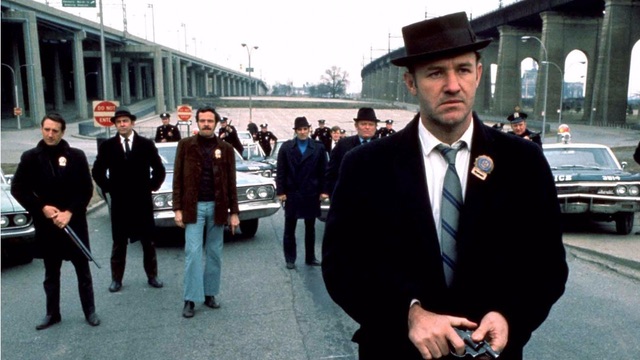
The acclaimed film The French Connection put to film a real-life drug trafficking operation. For a number of years, the so-called “French Connection” was how a lot of the heroin used in the United States reached its destination. Hackman plays “Popeye” Doyle, a New York City cop who helps uncover the drug conspiracy with his partner “Cloudy” Russo (Roy Scheider). Hackman, as well as Friedkin and screenwriter Ernest Tidyman, were broadly lauded — and awarded — for their parts in the film’s production.
The Royal Tenenbaums (2001)
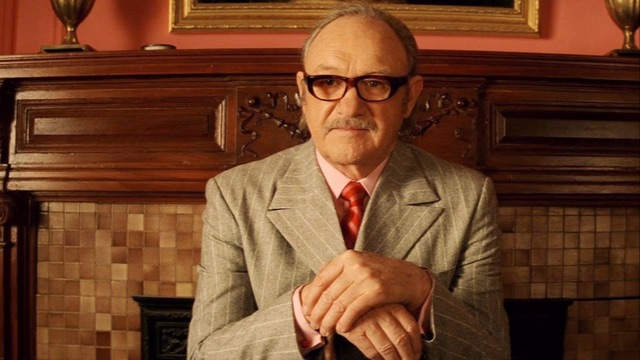
Royal Tenenbaum is perhaps Hackman last truly great role. He gives a dry yet moving performance as the estranged patriarch of the once-great Tenenbaum family. His children Chas, Richie, and Margot, who were once child geniuses, are now grown, neurotic and depressed. They have gone their separate ways. That is until he attempts to reconnect with them and ex-wife Etheline (Anjelica Huston) by faking a terminal illness. The Royal Tenenbaums is deservedly touted as one of Wes Anderson’s best films to date.
Young Frankenstein (1974)
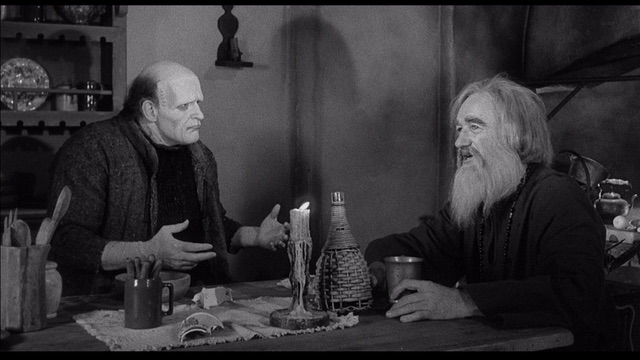
By the time Young Frankenstein was released, Mel Brooks was well-known for his comedic sensibilities because of his satirical films The Producers and Blazing Saddles as well as the television series Get Smart. He brings a similar humorous tone to Mary Shelley’s seminal novel. Young Frankenstein — starring Gene Wilder as the eponymous mad scientist and Peter Boyle as his creation — is wall-to-wall gags. Hackman, for his part, is credited simply as “Blindman” and plays a hilarious supporting role.
Unforgiven (1992)
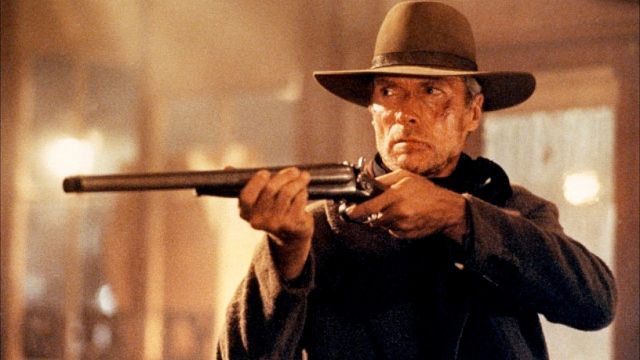
Clint Eastwood fills double duty in Unforgiven as director and protagonist William Munny. Munny is a retired outlaw and widower. His now simple agrarian lifestyle is interrupted by a young buck called the Schofield Kid (Jaimz Woolvett) who wants his help securing a reward in Big Muddy, Wyoming. A prostitute named Delilah Fitzgerald (Anna Levine) was attacked by a couple of ne’er-do-wells and her fellow courtesans post a sizeable reward for their deaths. Once there, Munny and the Schofield Kid find themselves at odds with the town’s sheriff, Bill Daggett (Hackman), who has outlawed such vigilante behaviors in his town. They also bump heads with a competing crew who also seeks the reward, led by a man named English Bob (Richard Harris). Unforgiven is one of Hackman’s best as well as Eastwood’s, whose foray into the western genre is long and storied.
Superman: The Movie (1978)
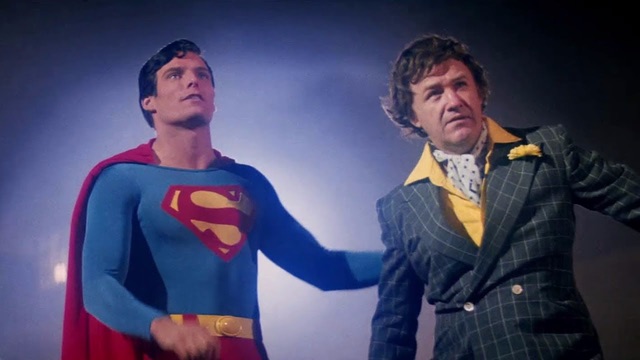
It is difficult to imagine a world without superhero movies being frequently released, but for the better part of the 20th century, it was the reality. Superman: The Movie may be the best marker for the beginning of the contemporary comic book movie era. George Lucas’ Star Wars opened the door to many new technological advancements in film, and director Richard Donner was one of the first to capitalize on them. The film documents the origins of the titular hero. With the ghost of his birth father Jor-El (Marlon Brando) to guide him, Christopher Reeve plays Kal-El himself, donning the iconic blue suit and “S” logo. Hackman, for his part, the ultra-evil industrialist and sworn enemy of Superman, Lex Luthor. He gives one of the campiest and most enjoyable performances of his career. With Margot Kidder as Lois Lane, it is a truly fun blockbuster.
We are a participant in the Amazon Services LLC Associates Program, an affiliate advertising program designed to provide a means to earn fees by linking to Amazon.com and affiliated sites.
